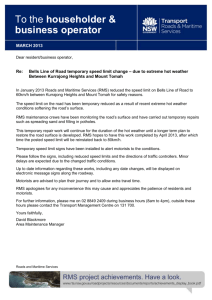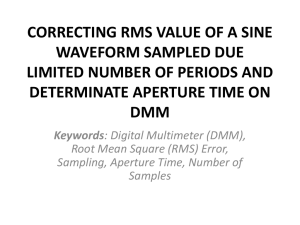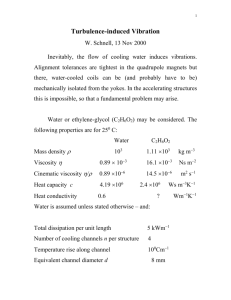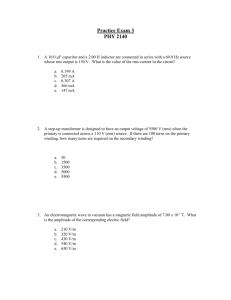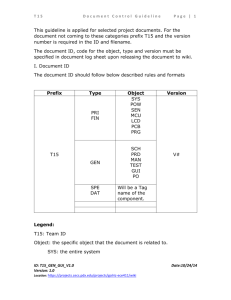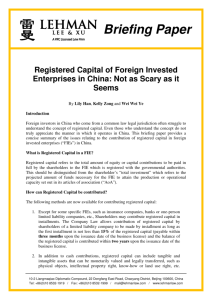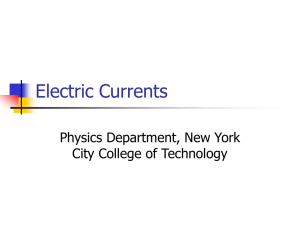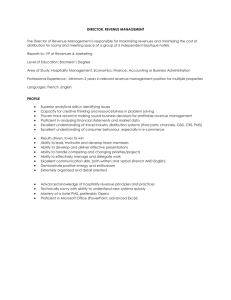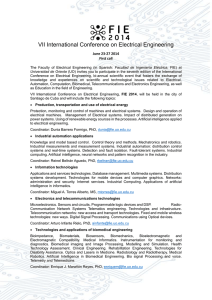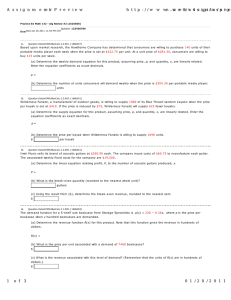TERMINOLOGY - Сумський державний університет
advertisement
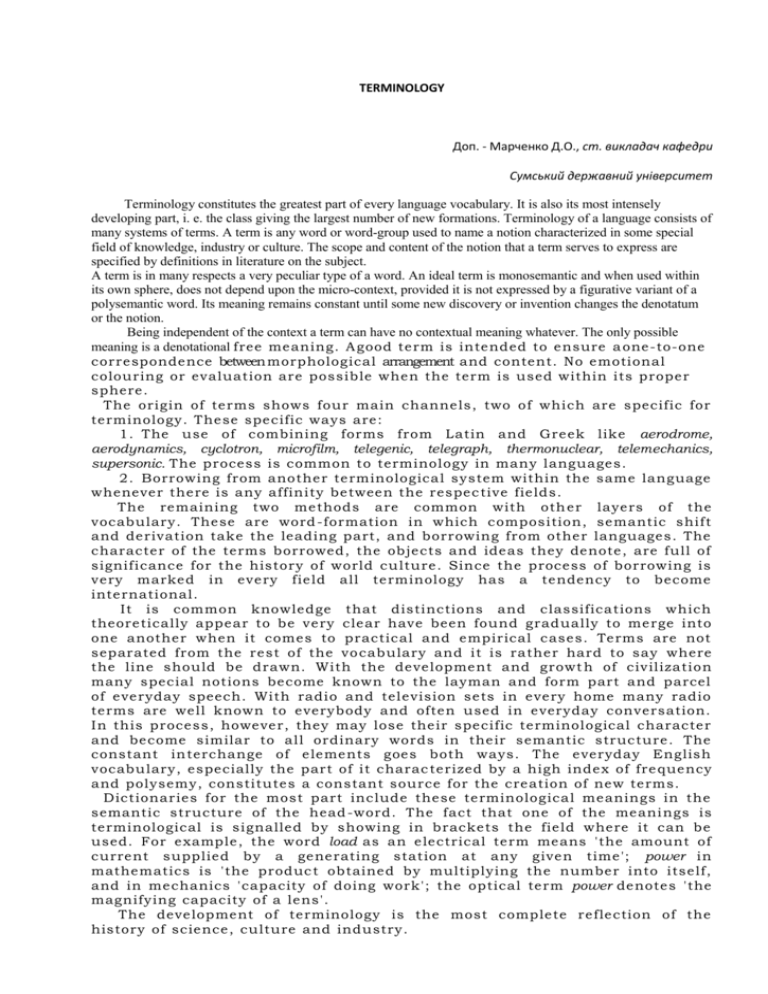
TERMINOLOGY Доп. - Марченко Д.О., ст. викладач кафедри Сумський державний університет Terminology constitutes the greatest part of every language vocabulary. It is also its most intensely developing part, i. e. the class giving the largest number of new formations. Terminology of a language consists of many systems of terms. A term is any word or word-group used to name a notion characterized in some special field of knowledge, industry or culture. The scope and content of the notion that a term serves to express are specified by definitions in literature on the subject. A term is in many respects a very peculiar type of a word. An ideal term is monosemantic and when used within its own sphere, does not depend upon the micro-context, provided it is not expressed by a figurative variant of a polysemantic word. Its meaning remains constant until some new discovery or invention changes the denotatum or the notion. Being independent of the context a term can have no contextual meaning whatever. The only possible meaning is a denotational free me aning. A good te rm is inte nded to e nsure a one -to-one corre sponde nce between morphological arrangement and conte nt. No e motional colouring or e valuation are possible whe n the term is used within its prope r sphe re . The origin of te rms shows four main c hanne ls, two of which are specific for te rminology. The se spe cific ways are : 1. The use of combining forms from Latin and Gre ek like aerodrome, aerodynamics, cyclotron, microfilm, telegenic, telegraph, thermonuclear, telemechanics, supersonic. The process is common to te rminology in many language s. 2. Borrowing from anothe r te rminologica l system within the same language whe neve r the re is any affin ity be twee n the respe c tive fie lds. The re maining two me thods are common with oth e r laye rs of the vocabulary. The se are word -formation in which c omposition, se mantic shift and de rivation take the le ading part, and borrowing from othe r language s. The characte r of the terms borrowed, the obje cts and ide as they de note , are full of significance for the history of world cu lture . Since the proce ss of borrowing is ve ry marke d in eve ry fie ld all te rminology has a te ndency to be come inte rnational. I t is common knowle dge that distinctions and classifica tions which the ore tically appe ar to be ve ry cle ar have been found grad ually to me rge into one anothe r whe n it come s to practic al and e mpirical c ase s. Te rms are not separated from the re st of the vo cabulary and it is ra the r hard to say where the line should be drawn. With the de ve lopme nt and growt h of civ iliza tion many special notions be come known to the layman and form part and parcel of e ve ryday speech. With radio and te le vision se ts in e ve ry home many radio te rms are we ll known to e ve rybody and ofte n use d in e veryday conversation. I n this proce s s, howe ve r, the y may lose the ir spe cific te rminological characte r and be come similar to all ordinary words in the ir semantic struc ture . The constant in te rchange of e le me nts goe s both ways. The e veryday English vocabulary, e specially the part of it charac te rized by a high inde x of fre que ncy and polysemy, constitute s a constant s ource for the cre ation of ne w te rms. Dictionar ie s for the most part inc lude the se te rminologica l me anings in the semantic structure of the he ad -word. The fact that one of the me ani ngs is te rminological is signalle d by showing in bracke ts the fie ld where it can be used. For e xample , the word load as a n e le ctrical te rm me ans 'the amount of curre nt supplie d by a ge ne rating station at any give n time '; power in mathe matics is 'th e produc t obtaine d by multiplying the numbe r into itse lf, and in me chanics 'capacity of doing work'; the optical te rm power de note s 'the magnifying capacity of a le ns'. The deve lop me nt of te rminology is the most comple te re fle ction of the history of scie nce , culture and industry.

